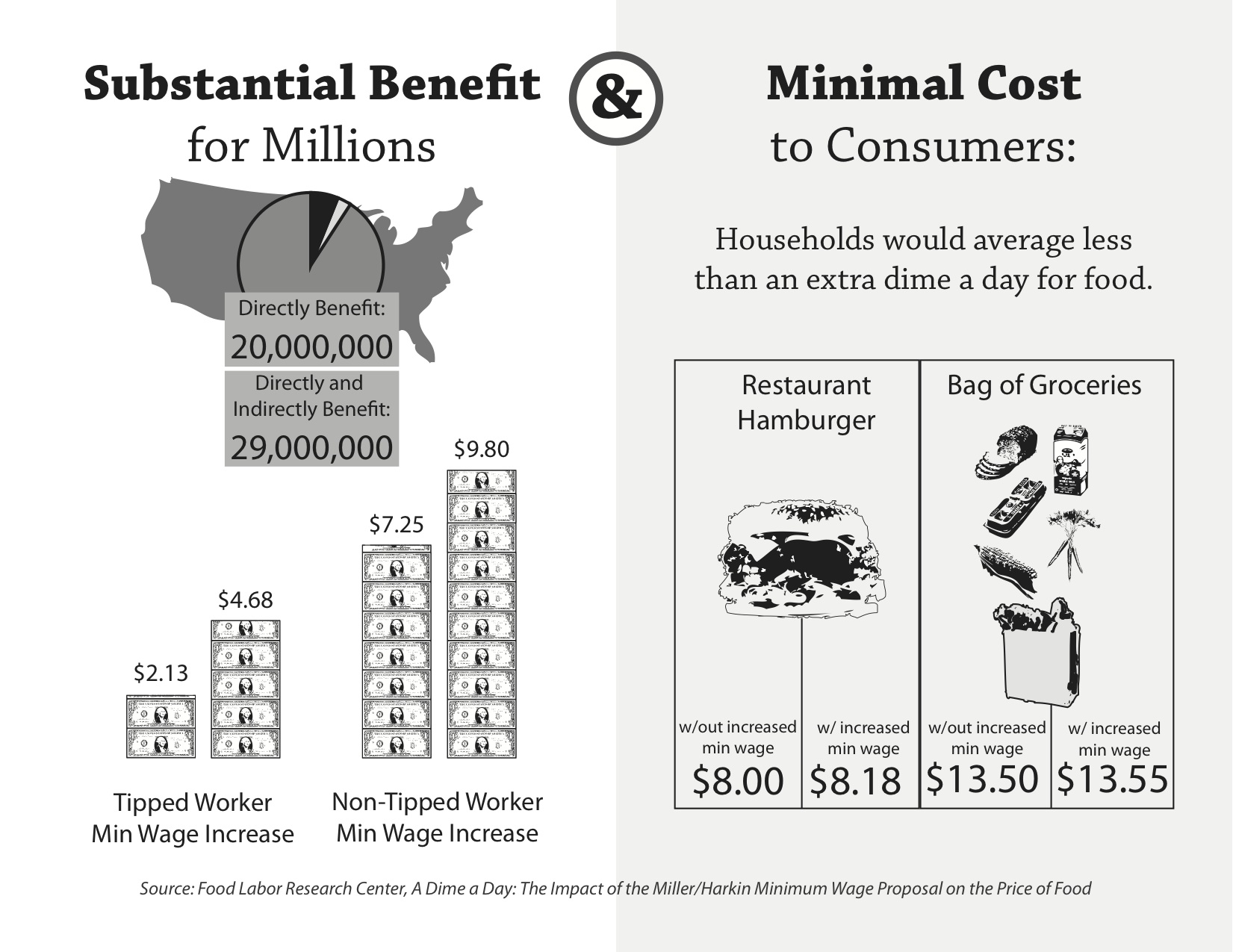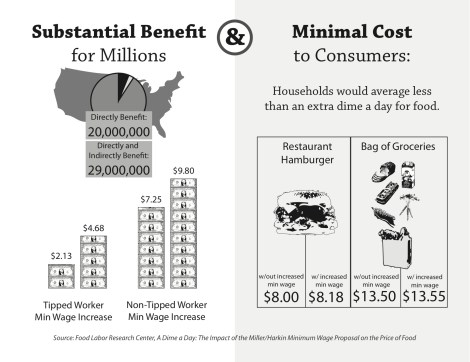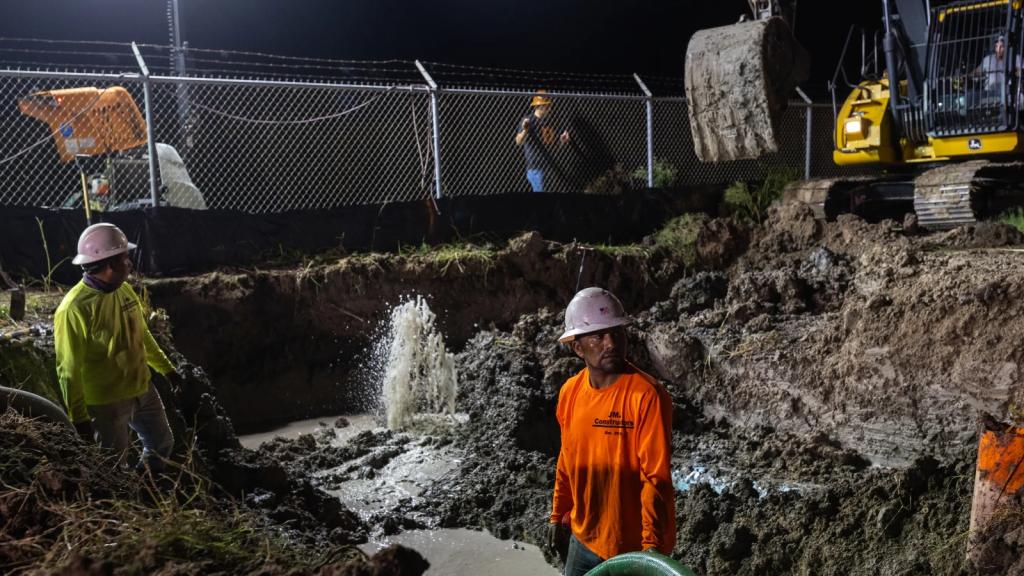A report out today (Food Day!) from the UC Berkeley Food Labor Research Center and Food Chain Workers Alliance challenges the belief that raising the federal minimum wage would increase the cost of food for Americans.
And by challenge, I mean it’s a swift kick to critics’ guts.
Eating ethically for some comes down to the (collapsing, burning) environment; for others, it’s the (adorable, sentient) animals. But far less often do we acknowledge the human labor that’s involved in the farm-to-table-to-belly journey.
Especially during an economic crisis in which millions of Americans are struggling to make ends meet, this argument raises very real concerns about working Americans struggling to be able to afford to eat out and at home.
This is how much of America has been handling that crisis.

However! The proposed Miller/Harkin bill that would raise the federal minimum wage from $7.25 to $9.80, the report states, would really serve to alleviate struggle.
We find that while the Miller/Harkin bill would provide a 33% wage increase for regular minimum wage workers and would more than double the wages of tipped workers over the same period, retail grocery store food prices would only increase by an average of less than half a percent over the three-year phase-in of the new minimum wage, and restaurant food prices would increase by less than one percent per year. This increased cost of food, both away and at home, would amount to about 10 cents more per day on average for American households over the three-year period.
That’s $36.50 per household per year to increase wages to a level still almost $1 less than their 1968 peak (adjusted for inflation, natch). Some other things that cost $36.50: one casual restaurant meal for two; this eco-modular storage stackable cube (what?); one-tenth of a decent road bike.
Meanwhile, the report estimates that impacted workers would earn an additional $40 billion in extra wages over the first several years of the bill’s existence. Further:
According to the Economic Policy Institute, during this same period, “GDP would increase by roughly $25 billion, resulting in the creation of approximately 100,000 net new jobs over that period.”
Seems like it might be worth that extra dime a day, hm?





